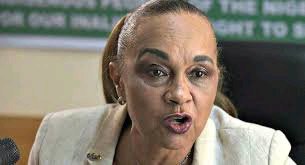Prominent Human Rights and Niger Delta Environmental Activist Ann-Kio Briggs has provided detailed commentary on the recent political realignment in Rivers State, where 27 state lawmakers dramatically switched their allegiance from the Peoples Democratic Party (PDP) to the All Progressives Congress (APC).
In a compelling video broadcast on Symfoni TV from 6:48, Briggs recounted the momentous occasion that has significantly altered the political landscape of Rivers State. The mass defection, which took place in the state’s legislative chamber, represents one of the most substantial political shifts in the state’s recent history.
“We all saw the 27 lawmakers in their chamber with a letter in front of the speaker,” Briggs stated. “This is a letter that they have defected to APC. And he read it, it was like two pages in the chambers. After he finished reading it, and then they defected.”
The defection, meticulously documented through the formal reading of a letter by the Speaker, marks a crucial turning point in Rivers State’s political dynamics. This mass exodus from the PDP to the APC has effectively reshaped the balance of power within the state legislature.
Political observers note that this unprecedented move has far-reaching implications for governance in Rivers State. The defection not only alters the legislative arithmetic but also signals a significant shift in the state’s political alliances and power structures.
The event has sparked intense debate about party loyalty, political stability, and the future of governance in Rivers State. As a respected voice in Niger Delta affairs, Briggs’s detailed account of the defection adds weight to the ongoing discourse about the state’s political trajectory and its potential impact on regional politics.
This development continues to reverberate through Nigeria’s political landscape, raising questions about party politics, legislative independence, and the broader implications for democratic governance in the state.

